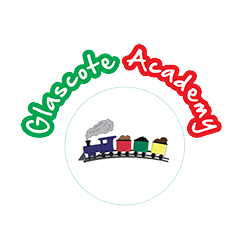History
At Glascote Academy, our History curriculum engages and excites children’s curiosity and supports the development of key historical knowledge, skills and concepts through the study of British and local history and other significant time periods and societies. In understanding periods, events and people from the past, our children will gain cultural capital of Britain’s past and that of the wider world to build respect, appreciation, and pride of their country. History on a world scale, as well as on a personal scale, will build awareness of children’s own heritage and enable them to be aspirational about the role they can play in the future.
At Glascote Academy, we teach History in a way that inspires our children to want to know about the past. The curriculum includes historical events that have occurred in Britain, from the earliest times to the present day. Our children are encouraged to consider these times and how people’s lives have been influenced as a result. They will be taught to think critically when exploring a range of sources, asking perceptive questions, weighing up evidence, whilst trying to form connections and record their own structured accounts.
We intend that our children will:
History is taught following a whole school overview. The units of have been selected to provide a breadth of both national and international events, time periods, civilisations and significant individuals. These are also being supplemented by local history studies.
The teaching, learning and sequencing of the History curriculum is as follows:
• In EYFS and KS1, children will focus on the world around them and their living memory of History before moving to events that go beyond living history. This will ensure a firm foundation for KS2 History.
• In KS2, the History curriculum is planned in chronological order to allow children to build an image of History over time and to use their knowledge of previous periods, events and people to better understand current learning.
The progression of knowledge and skills are set out in order to build and develop the following concepts:
• Chronological understanding
• Significance
• Similarity and difference
• Cause and consequence
• Continuity and change
• Enquiry
• Interpretation
